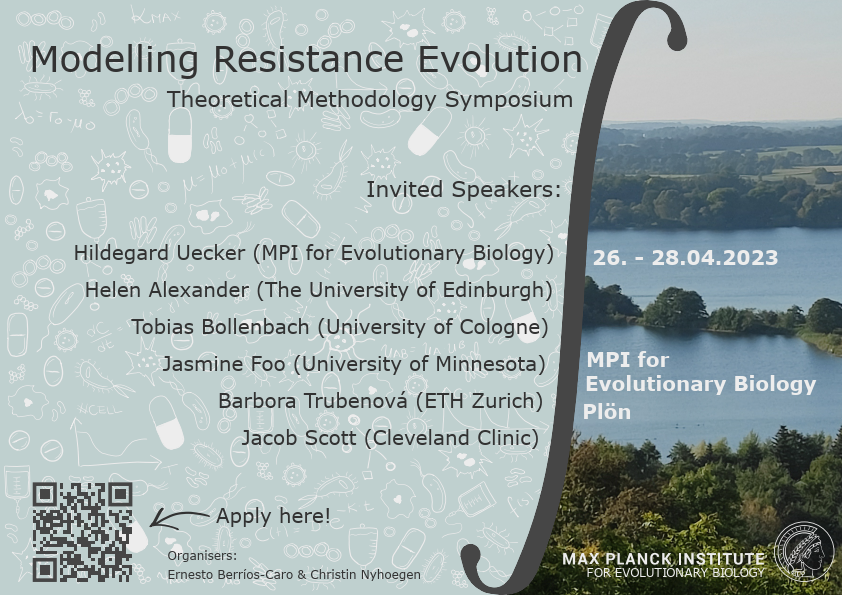Important dates
Symposium dates: 26 - 28 April 2023
Application deadline: 3 February 2023 (feedback by 10 February 2023)
Overview
Drug resistance has become a global threat to human health. The rise of drug resistance has triggered a large number of mathematical studies aimed at obtaining a better understanding of its evolution and how to prevent or delay its emergence. These studies addressing different resistance problems, such as antimicrobial or cancer drug resistance, often use similar theoretical approaches. These approaches involve methods from branching processes, Markov chains, population dynamics, and stochastic numerical simulations. For the modelling of patient treatments, the models need to take into account several factors related to the dynamics of drugs and the host, including, for example, drug interactions, availability of resources in the host, or pharmacodynamics of the drugs.
Given the large number of factors that come into play, a large variety of models on resistance evolution exist. There is no "one-size-fits-all" model to study resistance in bacteria or cancer. While constructing or already working with a model, components of it may change since its advantages and disadvantages become apparent only then. This process is often not shared, although it could benefit other researchers. Generally, there is often no room for detailed discussions of the methods applied to model resistance evolution in scientific meetings.
With this symposium, we want to bring together scientists working on resistance problems (both in bacteria and cancer) to give place to discussions on the theoretical methods employed in the study of resistance evolution. For this purpose, this meeting will include "method sessions" aimed at discussing specific topics relevant to the modelling of antimicrobial resistance (e.g., drug-drug interactions, pharmacodynamics, and population growth models).
Invited Speakers
- Hildegard Uecker (Max Planck Institute for Evolutionary Biology, Germany).
- Helen Alexander (University of Edinburgh, UK).
- Tobias Bollenbach (University of Cologne, Germany).
- Jasmine Foo (University of Minnesota, US).
- Barbora Trubenová (ETH Zurich, Switzerland)
- Jacob Scott (Cleveland Clinic, US)
Registration Information
There is no registration fee.
A contribution with either a poster or a talk is mandatory for the participation. The presentation details will be sent out once the participants have been selected.
Participants can choose to contribute a short talk (5-10 minutes) to one of the method sessions. More information on this can be found on the registration form.
Practical Information
Some practical information about the Max Planck Institute for Evolutionary Biology can be found here.
In case of any questions or special enquiries, please contact us at: berrios@evolbio.mpg.de or nyhoegen@evolbio.mpg.de.

